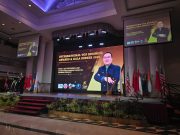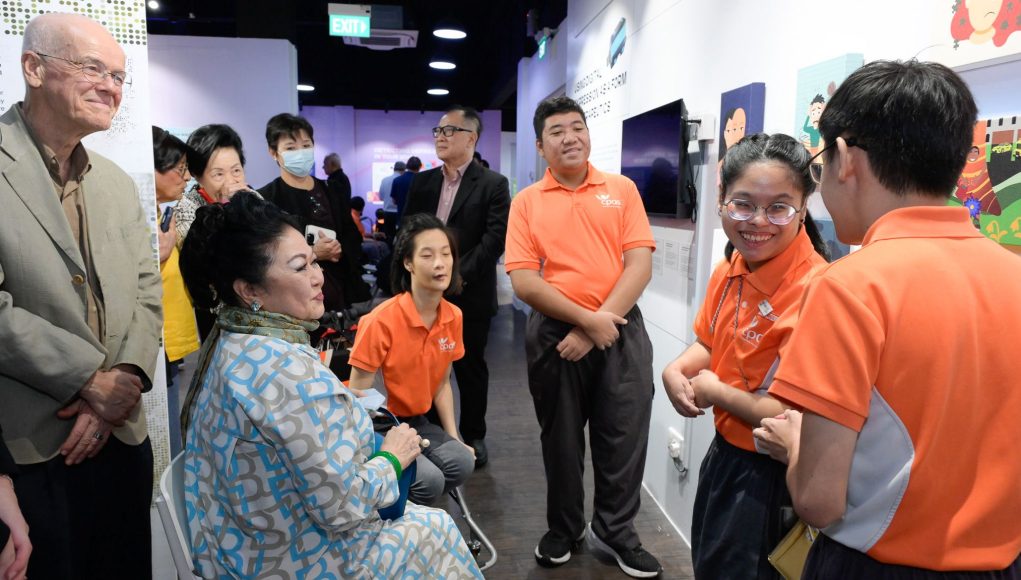(Singapore, 16 July 2025) — As the demand for mental health support continues to rise across all age groups, a first-of-its-kind curation has opened in Singapore to explore how digital innovation is reshaping the future of mental healthcare. Titled “Exploring the Digital Frontier of Mental Health”, the curation is presented by the Yeo Boon Khim Mind Science Centre at the D.S. Lee Foundation Mind Art Experiential Lab (MAELab) launched on 11 July at Alexandra Hospital, Singapore.
This latest milestone marks the fourth curation by MAELab, following a major endowment from the D.S. Lee Foundation in August 2024. The lab was subsequently renamed in honour of the Foundation’s support, reflecting a renewed focus on advancing mental health innovation and public engagement. Dr Della Suantio Lee, Founder and Chairperson of the Foundation, has long championed mental wellbeing as a national and personal priority. As she shared at the launch, “Mental health is not secondary, it is foundational.”
Graced by Professor Yeoh Khay Guan, Chief Executive of the National University Health System (NUHS), and Dr Della Suantio Lee, Founder and Chairperson of the D.S. Lee Foundation, the launch brought together over 80 stakeholders, including healthcare professionals, community partners, and youth participants. Associate Professor John Wong Chee Meng, Centre Director of the Mind Science Centre (MSC), delivered the welcome address, highlighting the urgent need for innovation in mental health access and resilience building.
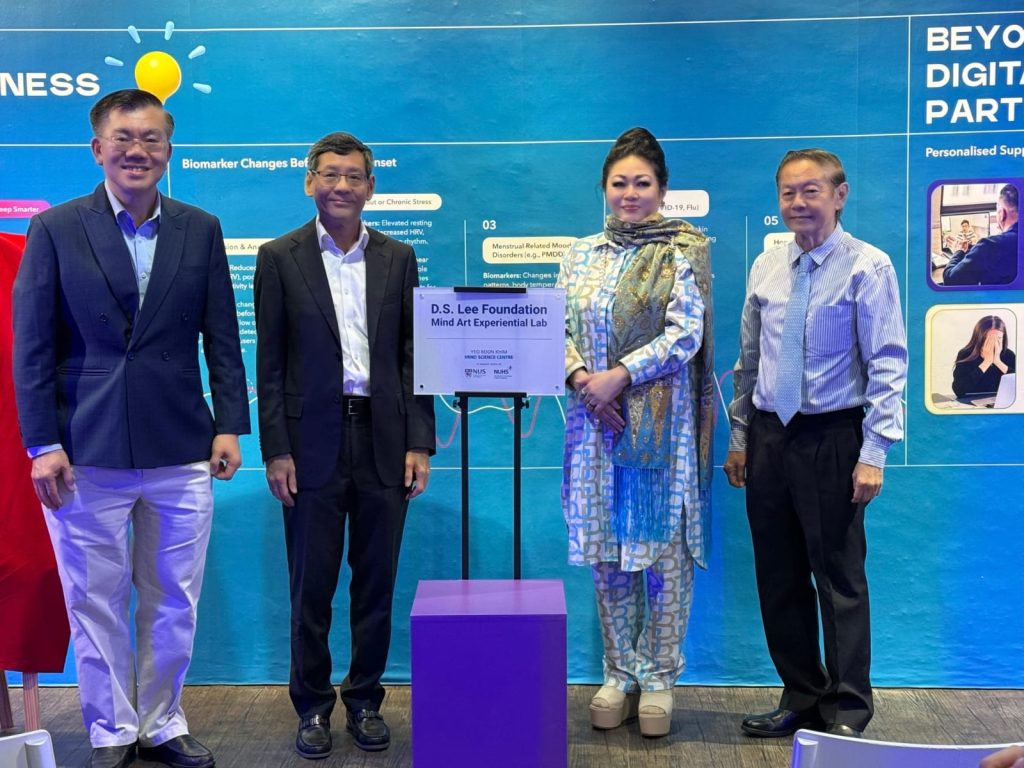
A Timely Response to a Growing Need
According to data from IMH and the NUHS-NUS Mind Science Centre, one in three Singaporeans will face a mental health condition in their lifetime. With rising needs across all age groups, the curation highlights how digital tools are being used to improve access, support early detection, and complement traditional care.
Framed around Singapore’s growing interest in digital wellness, the curation showcases how emerging technologies—ranging from AI therapy chatbots to brain-computer interfaces and digital therapeutics—are redefining how mental health is assessed, accessed, and addressed.
Five Thematic Zones Bridging Research and Experience
The curation is organised into five thematic zones, each offering a distinct perspective on digital mental health. The Introductory Zone provides an overview of the current digital mental health landscape, introducing visitors to a range of tools already available on the market. The Digital Biomarkers Zone focuses on technologies for screening, monitoring, and cognitive training. The Mental Well-being Zone explores how digital platforms and artistic expression can support emotional resilience. The Digital Therapeutics Zone showcases clinically validated digital interventions designed to complement traditional treatment. Finally, the Future Zone invites visitors to reflect on ethical issues such as data privacy, accessibility, and the responsible development of mental health technology.
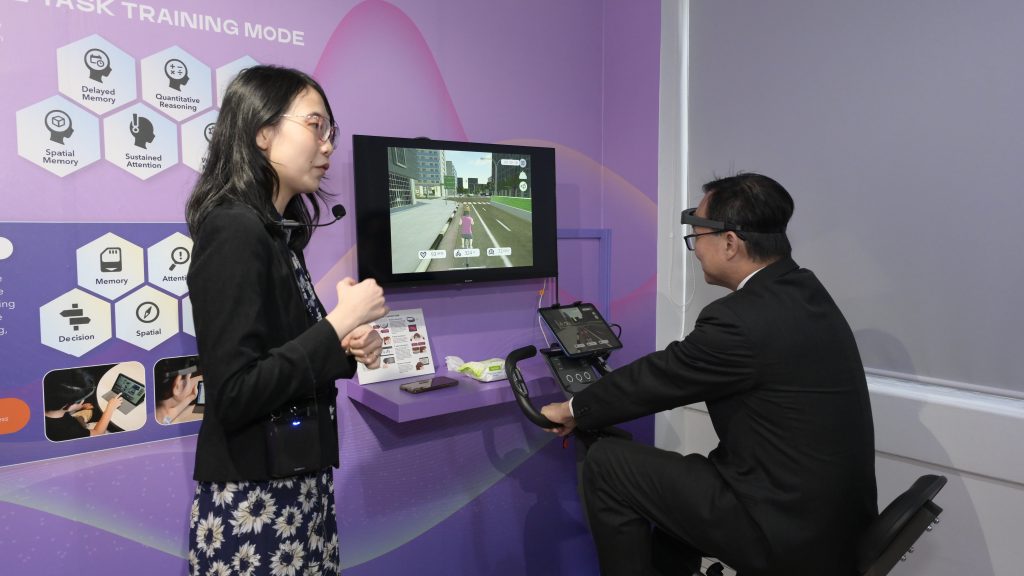
Among these, the Digital Biomarkers Zone stands out for its emphasis on early detection and personalised mental health screening. This zone features AI-powered tools that analyse speech patterns, reaction time, and brain activity to provide timely insights into one’s cognitive and emotional state. Visitors can try Wonder Tech, which uses voice analysis to detect potential signs of depression, or experience the Digital Brain Function Screen developed by Neurowyzr, a web-based tool designed for rapid cognitive assessment. The MOXO Continuous Performance Test offers a 15-minute attention profiling experience, while Neeuro allows guests to engage with EEG-based cognitive training games that integrate brainwave feedback with physical interaction.
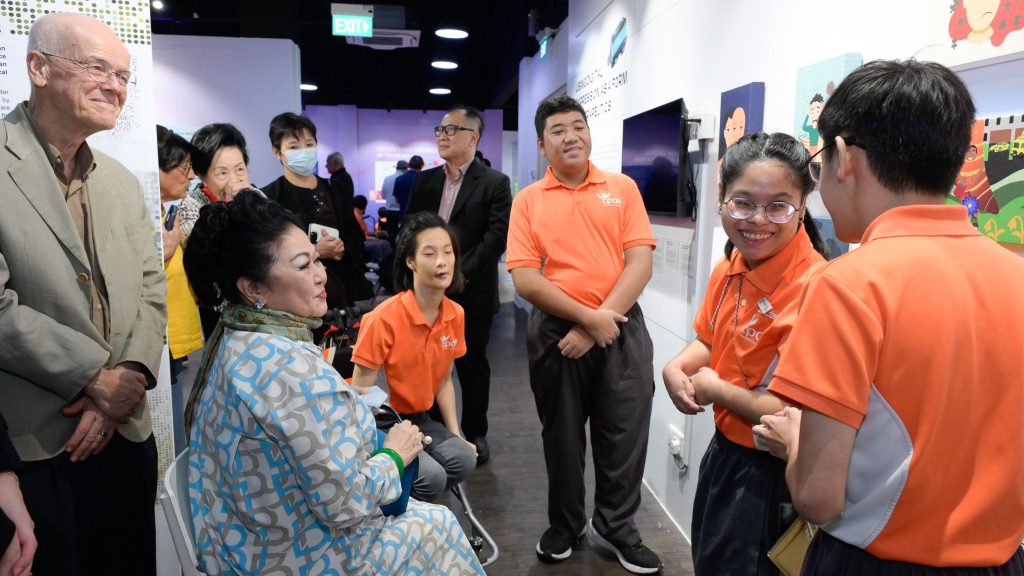
Adding a deeply human element to the curation, a special segment featured the digital artwork of children with cerebral palsy. They contributed their pieces as part of the showcase, bringing their own stories of strength and hope to life. In one moving moment, they shared the inspiration behind their art with Dr Della Lee, whose presence and encouragement brought warmth and affirmation to the experience.
A Platform for Collective Reflection and Action
“Human connection will always be central to mental healthcare, but digital tools can meaningfully augment care by improving access, reducing stigma, and enhancing continuity,” said Mr Surein Sandrasageran, a gerontologist and outreach director at the NUS Mind Science Centre. “We must integrate technology in ways that complement, rather than replace, the human touch.”
By bridging research, lived experience, and innovation, “Exploring the Digital Frontier of Mental Health” underscores that digital technology, when responsibly applied, can be a vital complement to traditional care — not its substitute, but its evolution.
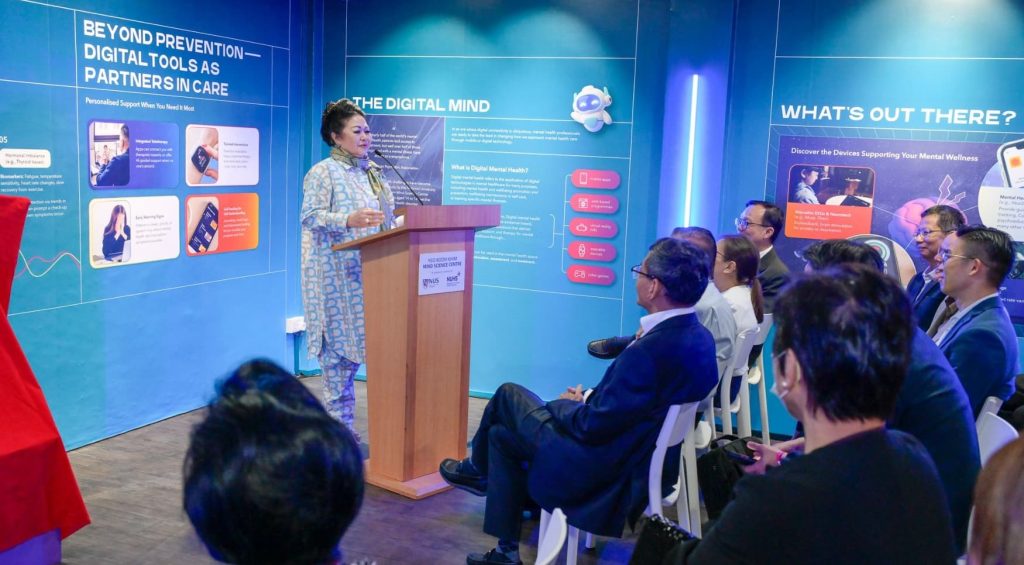
Catalysing Change Beyond the Curation
Dr Della Lee’s support for the Mind Science Centre goes beyond MAELab. The D.S. Lee Foundation’s gift also established the Della Suantio Lee Professorship in Mental Health and Digital Science, with the aim of advancing research in how technology, AI, and digital platforms can improve care access and deepen our understanding of the mind and brain.
As Dr Della Lee expressed in her remarks, “I hope it will serve as a catalyst—for bold ideas, impactful research, and fresh ways of thinking about how we support mental wellbeing today and in the future.” Her words reflect the broader aspiration behind the Foundation’s gift—to spark innovation that lasts well beyond the walls of the curation.




















